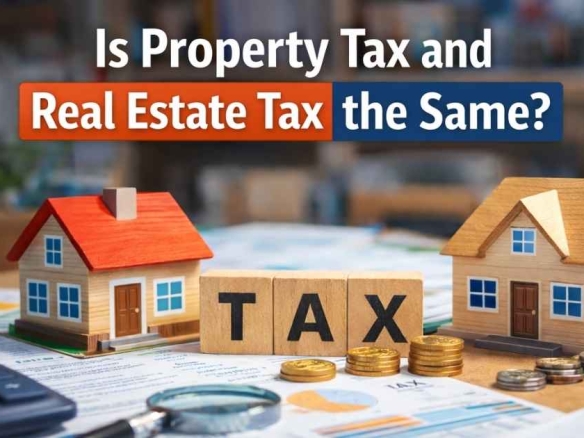Commercial Property Manager: Your Guide to Effective Property Management and Maximizing Investment Returns
When managing commercial properties, whether office spaces, retail properties, or industrial sites, a commercial property manager plays a pivotal role in ensuring smooth operations, tenant satisfaction, and financial performance. In this guide, we’ll cover everything you need to know about the responsibilities, skills, and benefits of hiring a commercial property manager, along with expert tips for selecting the right professional.
Table of Contents
The Core of Commercial Real Estate Management
Who is a Commercial Property Manager?
A commercial property manager is a licensed professional responsible for the day-to-day operations of a property. They act as the intermediary between the property owner and the tenants, handling everything from lease administration and rent collection to oversee the daily operations of building maintenance and repairs.
What is the Primary Goal?
The core objective of commercial property management is to protect and enhance the property value of the asset. This is achieved by maximizing occupancy rates through effective tenant relations, minimizing operating costs through savvy vendor management, and ensuring the property complies with all laws and regulations. A good property manager directly impacts the owner’s bottom line.
A Deep Dive into Key Duties and Daily Operations
Lease Administration and Tenant Relations
The lease is the foundation of the landlord-tenant relationship. Lease administration involves a deep understanding of every clause, from rent escalation to maintenance responsibilities. Skilled property managers use their knowledge to enforce lease terms fairly while working to maintain positive relationships. This balance is crucial for retaining tenants and minimizing vacancies, which directly protects the property owner’s income stream.
Financial Reporting and Budget Management
Transparent and accurate financial reporting is non-negotiable. A commercial property manager provides owners with regular statements detailing income, expenses, and forecasts. They develop the property’s annual budget, accounting for fixed costs, variable expenses, and capital reserves for future improvements. This financial foresight allows owners to make informed decisions about their real estate investment and plan for long-term cost savings.
Property Operations and Maintenance Oversight
Keeping the commercial property in top condition is a daily pursuit. This involves coordinating routine maintenance, handling emergency repairs, and managing a team of maintenance staff and external vendors. The commercial property manager handles everything from janitorial services and landscaping to major system repairs for HVAC, plumbing, and roofing. They also conduct regular property inspections to identify potential issues before they become costly problems.
Marketing, Leasing, and Retaining Tenants
Vacancy is the enemy of profitability. Property managers are tasked with marketing vacant office space or other commercial units, showing the property to prospective tenants, and negotiating lease terms. Their goal is not just to fill space but to secure high-quality, long-term tenants that enhance the property’s stability and reputation. Effective tenant retention strategies are often more cost-effective than constant marketing.
Risk Management and Regulatory Compliance
The world of commercial real estate is fraught with potential liabilities. A key duty of a commercial property manager is to mitigate risk by ensuring the property complies with all laws and regulations, including building codes, ADA requirements, and fire safety standards. This includes managing insurance policies, implementing safety protocols, and handling the legal process of eviction when necessary.
Table: 2025 Commercial Property Manager Salary Benchmarks (U.S. Data)
| Experience Level / Role | Average Base Salary (Low) | Average Base Salary (High) | Key Influencing Factors |
|---|---|---|---|
| Assistant Property Manager | $55,000 | $75,000 | Market (e.g., NYC vs. Midwest), portfolio size |
| Property Manager | $75,000 | $110,000 | Property type (e.g., industrial, retail), performance bonuses |
| Senior Property Manager | $100,000 | $150,000+ | Complexity of assets, team management, CRE experience |
| Portfolio Manager | $130,000 | $200,000+ | Total value and |
What Does a Commercial Property Manager Do?
A commercial property manager oversees the day-to-day operations of a commercial property, ensuring it is well-maintained, tenants are satisfied, and operations run smoothly. The role is multifaceted, combining elements of facility management, tenant relations, financial oversight, and legal compliance.
Key Responsibilities of a Commercial Property Manager
A commercial property manager handles various responsibilities, including:
Tenant Relations: Ensuring tenant satisfaction, managing lease agreements, addressing complaints, and handling disputes.
Lease Administration: Drafting, enforcing, and renewing lease agreements, ensuring compliance with terms and conditions.
Property Operations: Overseeing the property’s daily operations, including maintenance, repairs, and landscaping.
Financial Reporting: Preparing budgets, managing operating costs, handling rent collection, and ensuring financial transparency.
Regulatory Compliance: Ensuring the property complies with local zoning laws, safety regulations, and environmental guidelines.
Managing Property Maintenance
Maintenance is a crucial aspect of property management. A commercial property manager ensures regular inspections, scheduling repairs, overseeing maintenance staff, and ensuring compliance with health and safety standards.
How to Become a Commercial Property Manager
Becoming a commercial property manager involves a blend of education, experience, and certifications. While the requirements may vary by region, certain qualifications are generally expected.
Educational Requirements
Most commercial property managers hold a bachelor’s degree in real estate, business management, or a related field. While not always required, this provides a strong foundation in financial management, real estate law, and operations.
Key Certifications
Several industry-recognized certifications can enhance a property manager’s credibility and career prospects:
Certified Property Manager (CPM): Offered by the Institute of Real Estate Management (IREM).
Real Property Administrator (RPA): For managers focusing on office buildings and commercial facilities.
Certified Commercial Investment Member (CCIM): Provides expertise in commercial real estate investment.
Gaining Experience
Hands-on experience, such as working under a senior property manager or interning with a commercial property management company, is crucial. Experience in financial reporting, lease negotiations, and maintenance management helps prepare future managers for the challenges they will face.

Arnold Property Management: Maximizing Rental Investment Returns in 2025


4D Property Solutions: The Best Guide for Property Management in Louis, Missouri
Commercial Property Manager vs. Residential Property Manager
While both commercial and residential property managers handle leasing and maintenance, their job scopes differ significantly due to the nature of the properties they manage.
Key Differences
Property Type: Commercial property managers deal with retail spaces, office buildings, and industrial properties, whereas residential managers focus on homes and apartments.
Tenant Relationships: Commercial tenants are often businesses, so the nature of lease negotiations and tenant interactions differs. Residential property managers focus on individual tenants.
Maintenance Requirements: Commercial properties generally require more extensive upkeep, including HVAC systems, large-scale landscaping, and parking lot management.
Benefits of Hiring a Commercial Property Manager
Hiring a skilled commercial property manager can bring several benefits, particularly for property owners who want to maximize investment potential and minimize stress.
Expertise and Knowledge
A professional property manager brings expertise in managing both the operational and financial aspects of the property. From tenant relations to compliance with local regulations, a manager ensures everything is handled efficiently.
Maximizing Property Value
An experienced property manager can significantly increase the value of your commercial property by keeping tenants satisfied, maintaining the property well, and ensuring a steady stream of income.
Cost Savings
With a professional managing the property, owners can often save money in the long run. A property manager can prevent costly mistakes, such as uncollected rent, missed maintenance issues, and tenant disputes.
Commercial Property Manager Fees and Costs
Understanding the costs associated with hiring a commercial property manager is crucial for any property owner. Generally, property managers charge a percentage of the rent collected, but additional fees may apply for specific services.
Typical Fee Structure
Monthly Management Fees: Usually 4-12% of the monthly rent income.
Leasing Fees: Managers may charge a separate fee for finding new tenants, typically around 25-100% of the first month’s rent.
Additional Fees: Fees for maintenance coordination, accounting services, or emergency repairs may be added to the monthly bill.
Is Hiring a Property Manager Worth It?
While there are costs involved, the value that a property manager brings in terms of tenant retention, maintenance management, and legal compliance far outweighs the fees in many cases. It allows property owners to focus on their other investments and businesses without worrying about day-to-day operations.
How to Choose the Right Commercial Property Manager
Choosing the right commercial property manager is essential for ensuring the success of your investment. Below are a few tips to guide your decision-making.
Evaluate Experience and Credentials
Look for property managers with extensive experience in commercial real estate. Check for certifications like CPM, RPA, or CCIM, which demonstrate their expertise in managing commercial properties.
Assess Service Offerings
A good commercial property manager should offer a wide range of services, from lease administration and financial reporting to maintenance management and tenant relations.
Check References and Reviews
It’s essential to ask for references from other property owners who have worked with the manager. Online reviews and testimonials can also provide valuable insights into their effectiveness and reputation.
Tools and Software for Commercial Property Management
Modern property management requires advanced tools and software to streamline operations. A good property manager will use software that helps in tenant communications, financial reporting, and maintenance scheduling.
Property Management Software
Popular tools like Yardi, AppFolio, and Buildium help property managers handle lease tracking, maintenance requests, and accounting, ensuring efficient operations.
CAM (Common Area Maintenance) Reconciliation
Property management software can also help track CAM costs and ensure tenants are charged correctly for shared space usage.
Conclusion
Commercial property management is an essential role that involves a broad range of responsibilities, from financial oversight to tenant relations and property maintenance. A skilled commercial property manager ensures that your property is well-maintained, compliant with regulations, and generates consistent income.
Key Takeaways:
Commercial property managers handle daily operations, tenant relations, financial reporting, and property maintenance.
Hiring a property manager can save you time, money, and stress while increasing the value of your commercial property.
Choose a property manager with the right experience, certifications, and a comprehensive service offering.
FAQ Section:
What does a commercial property manager do?
A commercial property manager oversees the management of commercial properties, including tenant relations, lease administration, financial management, and maintenance.How much does a commercial property manager make?
A commercial property manager’s salary can vary based on location, experience, and the type of property they manage, but it typically ranges from $50,000 to $100,000 annually.How to become a commercial property manager?
To become a commercial property manager, you typically need a degree in business or real estate, relevant certifications (such as CPM or RPA), and hands-on experience in property management.What are the benefits of hiring a commercial property manager?
Hiring a commercial property manager offers benefits such as expertise in managing property operations, maximizing property value, and ensuring regulatory compliance.What is the difference between a commercial and residential property manager?
The primary difference lies in the type of properties managed. Commercial property managers handle office buildings, retail spaces, and industrial properties, whereas residential managers oversee homes and apartments.



Join The Discussion